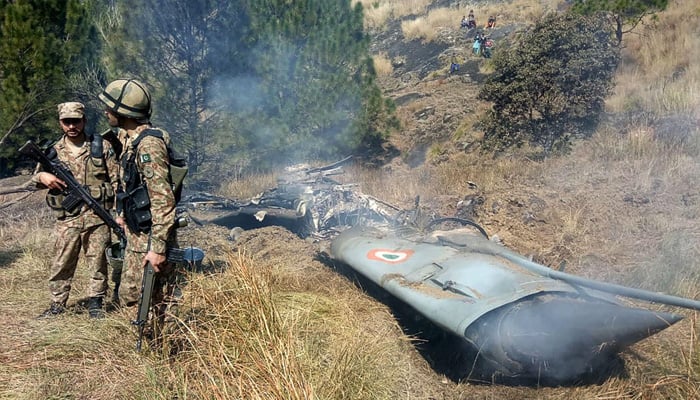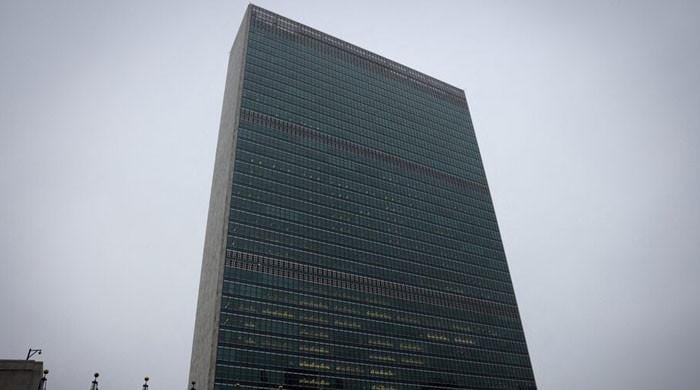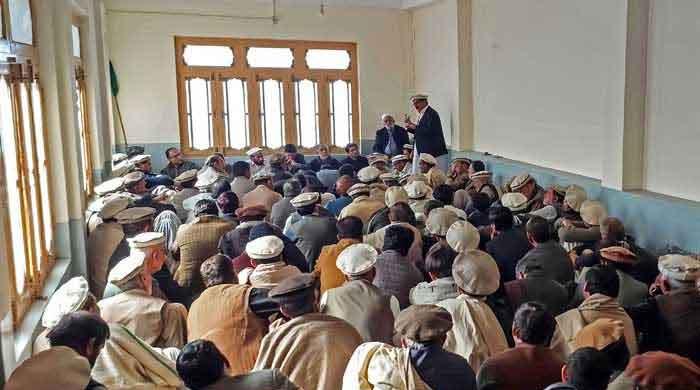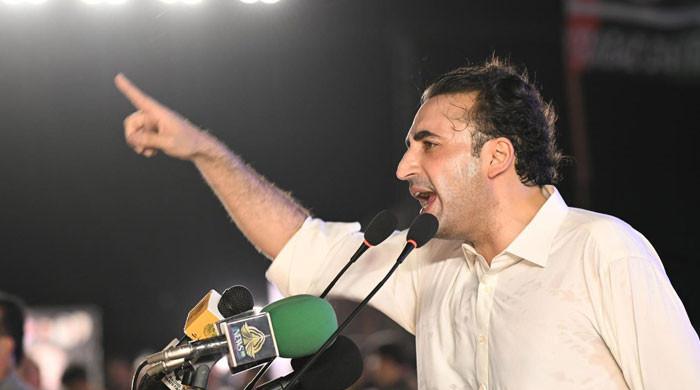Pakistan's 2019 strike delivered chilling message to Indian military leadership
Pakistan’s armed forces demonstrated their precision and resolve by targeting highly sensitive location inside IIOJK
April 27, 2025

- Pakistan struck near Indian brigade HQ where army chief was present.
- Downing of Indian jets, pilot's return defused immediate escalation.
- Missile threat met with warning of double retaliation by Pakistan.
ISLAMABAD: In a significant but largely undisclosed episode during the 2019 Pakistan-India military standoff, Pakistan’s armed forces demonstrated their precision and resolve by targeting a highly sensitive location inside Indian Illegally Occupied Jammu and Kashmir (IIOJK), an informed source has revealed.
Following the Indian Air Force’s failed strike in Balakot, Pakistan retaliated by striking a target in Krishna Ghati Sector — just 500 metres from an Indian Army Brigade Headquarters, where none other than the Indian Army chief himself was present, overseeing operations.
According to the source, the Indian Army chief hastily left the Brigade Headquarters shortly after the Pakistan Army delivered its warning strike, which was seen as a clear message of Pakistan’s precision capabilities and strategic depth.
Pakistan Air Force had successfully shot down two Indian fighter jets during the aerial engagements and captured Indian Air Force pilot Wing Commander Abhinandan. The pilot was later returned to India as a goodwill gesture, a move widely credited with defusing immediate tensions.
In the aftermath, the credible source says, India’s premier intelligence agency RAW contacted Pakistan’s Inter-Services Intelligence (ISI) to convey their appreciation for Pakistan’s responsible approach. RAW acknowledged that Pakistan’s decision to return the pilot had averted a dangerous escalation into a full-scale war.
Furthermore, the source said that a shaken Indian leadership had considered launching missile strikes against Pakistan following the downing of its jets.
However, Pakistan’s prompt and firm message that any Indian missile fired would be met with double retaliation, forced New Delhi to reconsider, effectively subduing further aggressive posturing.
Originally published in The News











